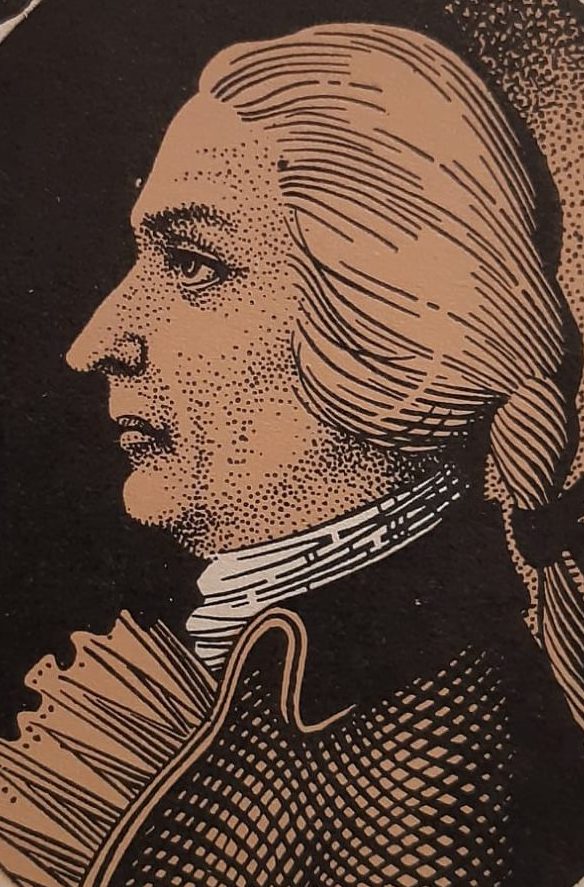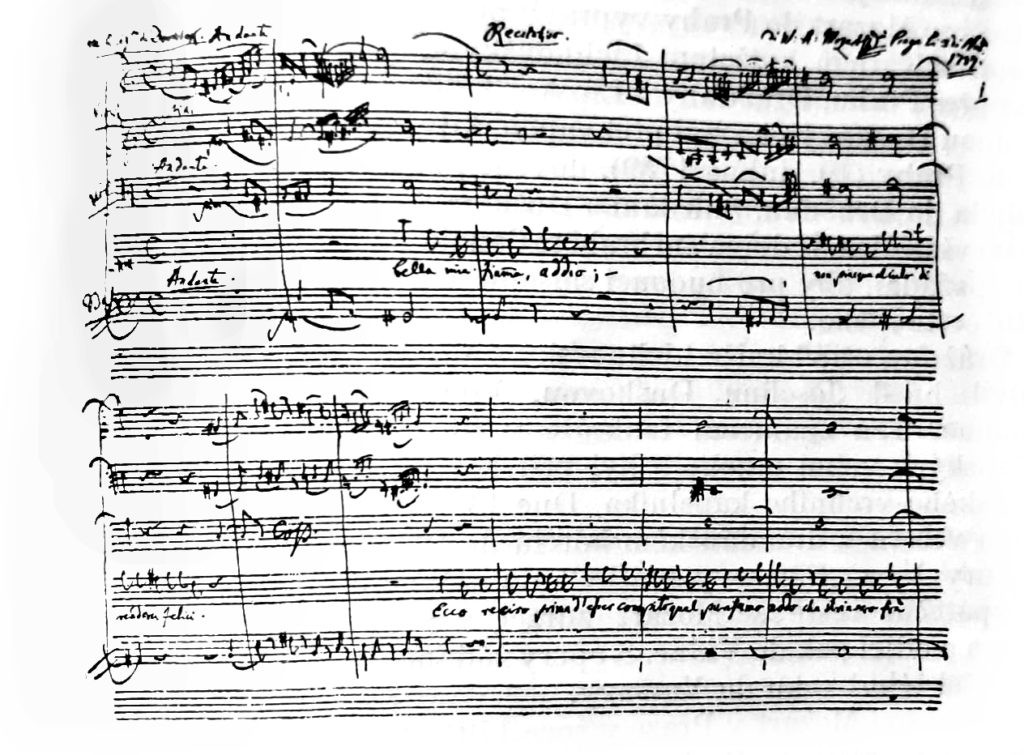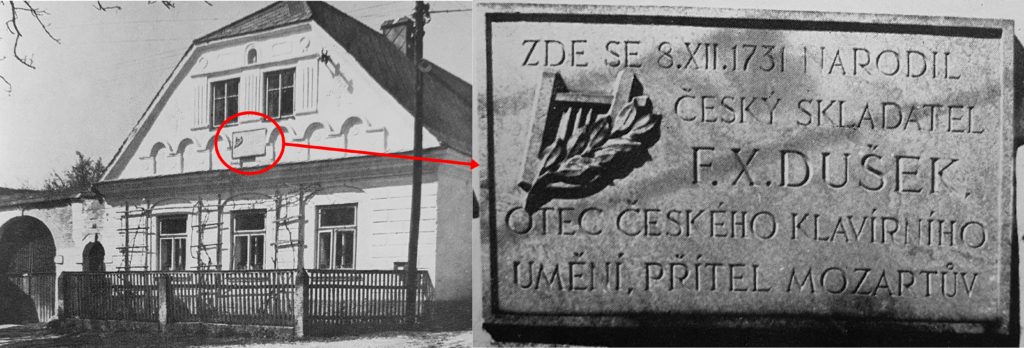Table of Contents
Introduction
In this article I would like to talk to you most practically and concisely possible about František Xaver Dušek (1731-1799): given the small volume of research on the author, it may be the first time you hear him mentioned. This is due in large part to the fact that he worked almost exclusively for the private palaces of the Prague aristocracy: having almost always been at the service of private realities, the dissemination of his works suffered from an important limitation due to the preservation of manuscripts in buildings not accessible to the public. Although all these events have not promoted the circulation of his works on a large scale, this author deserves to be rediscovered and we at MDLP hope to be able to make our small contribution so that his compositions start spreading again.

Why František Dušek?
The moment you hear about little-known composers, a layman often harbors a certain suspicion. He wonders if it is right to pay attention to it, when there is so much to learn from protagonists of the History of Music such as Beethoven, Chopin, Liszt, Schumann, Clementi, Corelli etc., known all over the world. Suspicion becomes insurmountable if these authors, on everyone’s lips, have never yet been explored: at that point, nothing seems to justify the fact that one must listen to Dušek earlier than, for example, Mozart. And yet many phenomena of the History of Music have been, in whole or in part, reflections of the influence of minor composers: let’s think, for example, how much Bach inspired Mozart, even though at the time he was almost unknown. Similarly, Dušek’s influence on contemporary and later composers was resounding: he was among the very first composers to spread piano culture in the Czech Republic, and is still considered the initiator of Bohemian pianism today. He was a pupil of Georg Christoph Wagenseil, one of the authors who exerted the greatest influence on Franz Josef Haydn.
Dušek And Mozart
We did not name Mozart by chance: his friendship with Dušek went down in history. The two composers, who in the eighteenth century were among the most famous figures of the music scene, exchanged different favours: the Bohemian composer hosted Mozart twice in his home; the two shared some compositions among which perhaps the most famous case that has come down to the present day is that of the page taken from the Cantata that Mozart dedicated to the wife of the Bohemian composer, entitled Bella Mia Fiamma Addio.

His friendship with the famous Composer from Salzburg is mentioned in the commemorative plaque placed on his birthplace in Chotěborky, presumably in an attempt to enhance a figure that today, for mainly extramusical reasons, is less known than that of Mozart. In this way, however, there is a risk of passing on the erroneous idea that Dušek had been important as a friend of Mozart: as we have already had to observe, both composers for different reasons were famous when alive. For this reason, the right key to historiographical interpretation for this plaque is to glimpse a completely autonomous composer, who at the time enjoyed maximum prestige and exerted an important influence on his contemporaries, including Mozart.

Works and style
Dušek is stylistically halfway between the Galante Style and eighteenth-century Classicism, with here and there some Baroque influence. He studied in his youth in Vienna, suffering the profound influences of Hasse, Rutini and Galuppi. Later, he settled in Prague: here, in contrast to many of his contemporaries, he devoted himself among the various styles to the study of keyboard composition, setting aside the genre of opera in music, which as we have seen in a previous article that you find here was in its phase of maximum diffusion. This let him develop a particular concentration on the expressive possibilities of the instrument, an attitude that we had already seen characterised, in different forms and times, by composers such as Frescobaldi. In the mature phase, we glimpse at times the influence of Carl Philipp Emmanuel Bach: if you missed the article we dedicated to this author, you can find it here. Some sonatas such as the I (starting from the second movement), the III (whose progressions recall the style of Bach son) or the XXI (which we could define, in part, already romantic) suggest the marked influences of the so-called Empfindsamer Stil, which was implanted on the Gallant Style but preferred more energetic accompaniments and an elimination, in whole or in part, of the erudite component for a return to expressiveness designed for true and simple feelings. Below you can listen to the aforementioned sonata XXI in the performance of the fortepianist Marius Bartoccini, who made the first absolute complete recording of all the music for fortepiano two and four hands of the Czech composer. He is also the administrator of one of the few Facebook pages dedicated to the author, which is worth mentioning because it is full of information and unpublished photographs on the subject: you can find it here.
Another essential resource that I would like to recommend is the Bärenreiter edition of his sonatas. You can sort the score from the banners below: if you do, a small part of your purchase will go to support this blog.
Volume 1
Volume 2
The last phase of the author’s life is characterized by a style that anticipates Romanticism, placing his latest production in the proto-romantic current: an example above all is represented by the masterpiece of Sonata X.

You can click here or in the image below to buy and instantly download in MP3 format the full performance of this and other sonatas by the Bohemian composer: if you complete the download, a small percentage of your purchase will go to support this blog.

Conclusions
For this article on František Xaver Dušek is everything, we will have the opportunity to explore in detail his works in the Musical Analysis section. Do not forget to subscribe to our blog, via WP or form mail, so as not to miss the news on the subject. See you in tomorrow’s article!
- History Of The Piano – The Fortepiano - July 12, 2022
- Curt Sachs – History Of Organology At a Glance - July 8, 2022
- Giuseppe Verdi – Rigoletto, Il Trovatore, La Traviata - June 29, 2022
